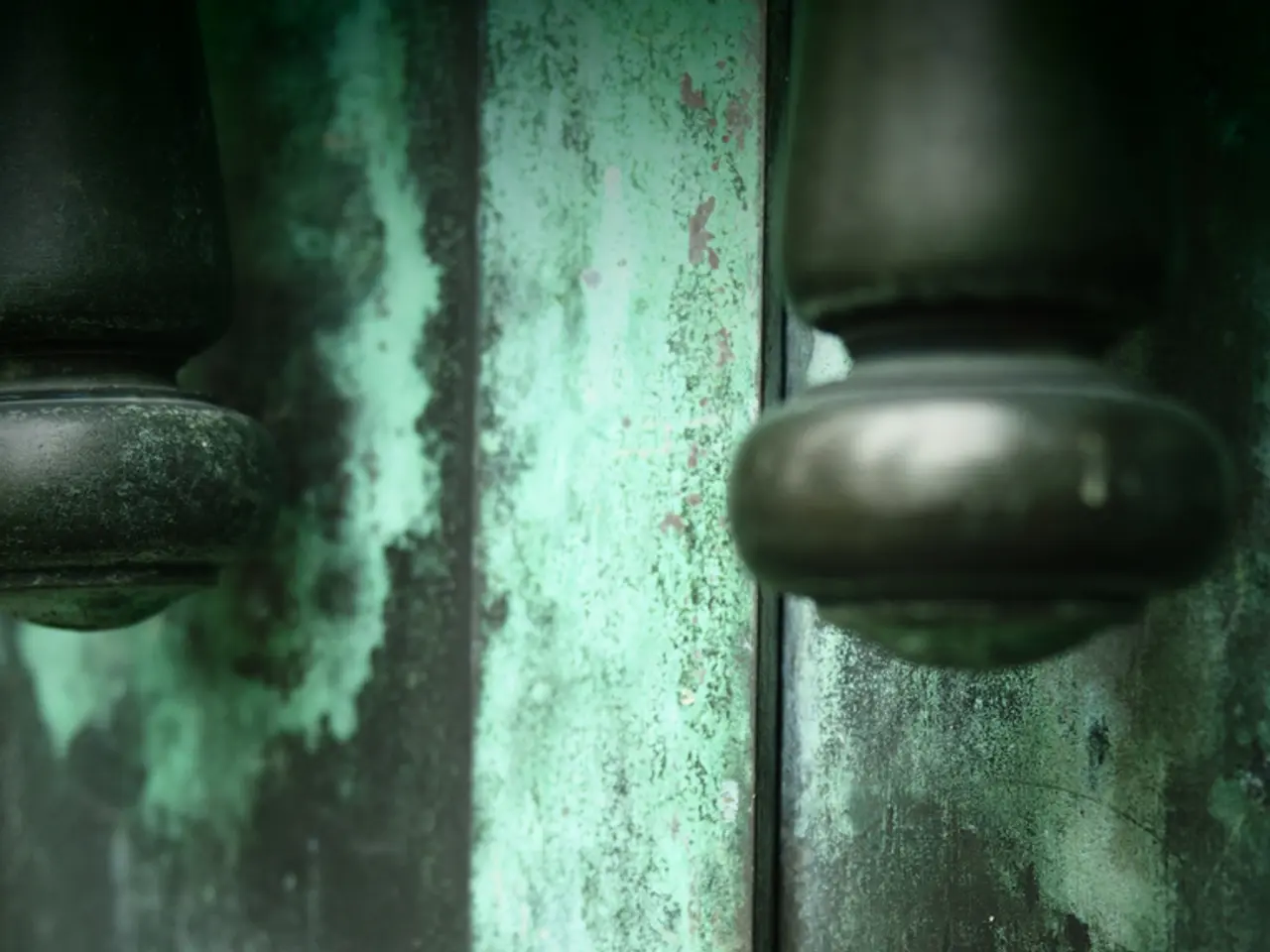Government fall short in delivering promised bureaucratic reforms
In a bid to modernise and simplify government services, the German government is embarking on a series of initiatives aimed at reducing bureaucracy and enhancing digitization. These efforts are part of a broader strategy to create a more efficient and innovative nation.
One of the key initiatives is the current coalition agreement, which aims to reduce bureaucracy in the immigration of skilled workers. The plan includes setting up a "work and stay agency" to streamline the recognition of foreign professional qualifications, with the goal of completing the process within eight weeks. The agreement also commits to reducing written form requirements and enhancing digitization in areas like parental allowance and employment contracts.
Chancellor Friedrich Merz's government is emphasizing technology and innovation, with ambitions to turn Germany into an "AI nation." This includes investments across multiple ministries focused on digitization and innovation. The Federal Ministry for Digital and State Modernization has been created to remove obstacles such as email bans in offices and modernize administration through digitization.
The push to reduce overregulation and bureaucracy, particularly for Small and Medium Enterprises (SMEs), is another key focus. This includes exploring new legal forms like steward ownership for SMEs.
However, the costs of bureaucracy are significant. For instance, Delo, an adhesive manufacturer, has more than 400 employees handling additional bureaucratic tasks, amounting to ten full-time employees just for bureaucracy and legal requirements. The costs for Delo alone amount to 600,000 euros per year for fire safety officials.
Economist Martin Werding suggests that streamlining the 25% of bureaucratic processes that have the most significant impact on investment and location decisions could be beneficial. Werding believes that improvement can be achieved through streamlining existing processes rather than reducing the workweek.
Germany spent a total of one billion working hours on bureaucracy last year, with approximately a third of administrative services digitized. The goal is full digitization in another five years. However, the land registry office in Germany is not digital, and the process of handling emails involves printing them out, checking the sender's identity, and writing a letter for further action.
The bridge construction in the community of Wust in Brandenburg, completed over the railway tracks in 2023, is not usable due to delayed access roads construction. The bridge and access roads must be approved and tendered separately, causing delays in the access roads construction. The bridge construction cost 17 million euros, but the access roads are not expected until 2026.
Excessive bureaucracy discourages investment and may cause companies to reconsider opening subsidiaries in Germany. The German government has promised to relieve bureaucratic hurdles and deliver progress in 70 days, but tangible progress remains largely absent. Friedrich Merz's statement blaming citizens for Germany's ailing economy and advocating for a shorter workweek drew criticism.
While specific details about the roles of Karsten Wildberger and Thorsten Frei in these initiatives are not available, they are mentioned in the article. The full report on Germany's bureaucracy chaos can be found on the RTL News YouTube channel.
- The German government's policy-and-legislation initiatives, under Chancellor Friedrich Merz, strive to streamline bureaucratic processes in various sectors, such as immigration, parental allowance, and employment contracts, aiming to digitalize and reduce administrative tasks, including several aspects of the employment policy.
- The push for a more efficient business environment extends beyond the digitization of bureaucratic processes, with plans to reduce regulations and bureaucratic obstacles, especially for Small and Medium Enterprises (SMEs), through innovative legal forms like steward ownership.
- Finance, business, and politics are interconnected in the German government's policy-and-legislation efforts to tackle bureaucracy, as evidenced by the significant costs involved, such as the 600,000 euros per year for fire safety officials at Delo alone, and the potential impact on foreign investment due to bureaucratic hurdles.




